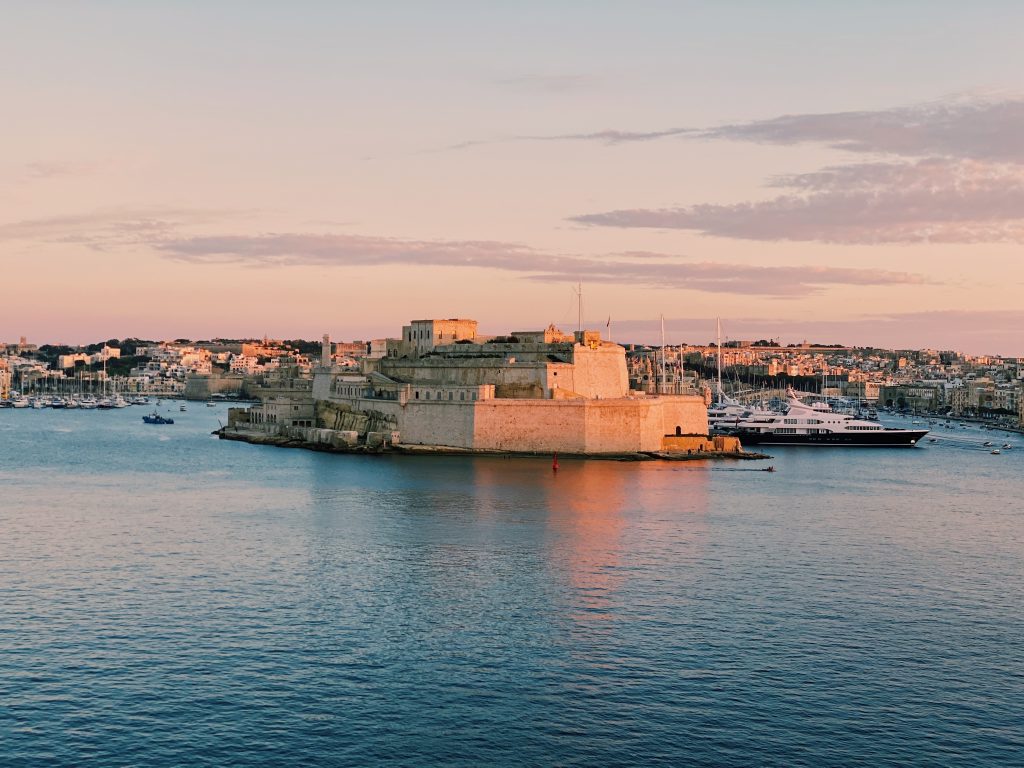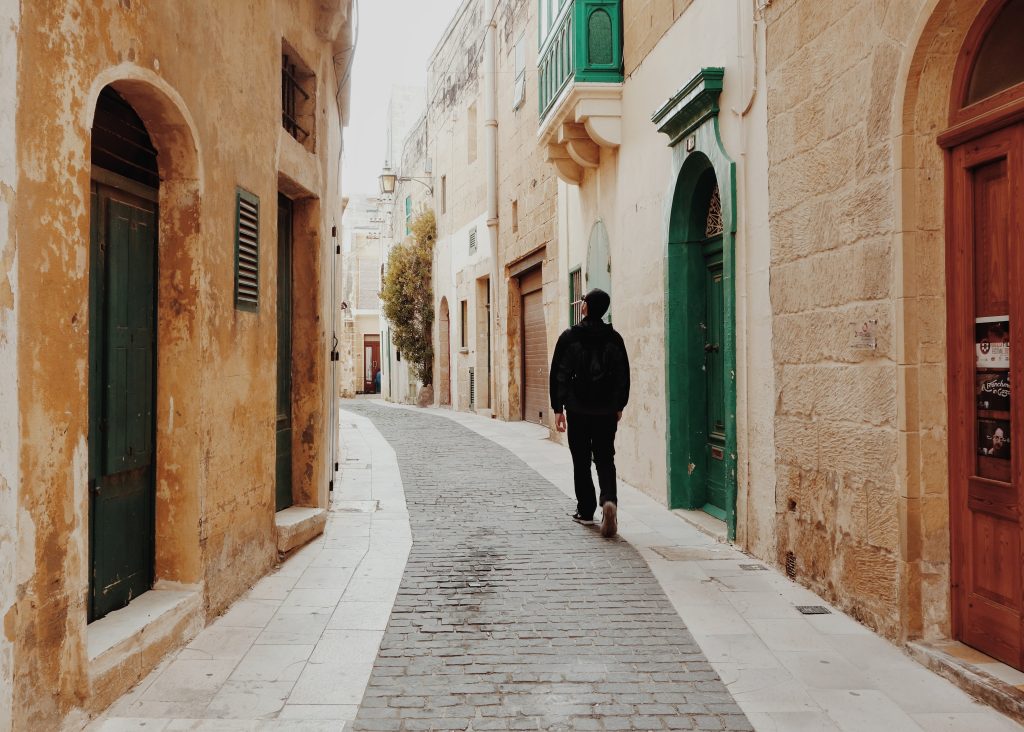Retiring in Malta?
What makes Malta a top retirement destination?
Malta is consistently ranked as one of the best retirement destinations across the world, with the number of foreign nationals relocating to Malta increasing each year:
- On July 29 2024, the well-respected website travelandleisure.com published an article called “This Island Is One of the Best Places to Retire in Europe for Affordability and Safety” in which it also states that
- Malta was in the top three of countries according to Global Citizen Solutions, a consulting company that specialises in visa and relocation for Americans.
- Malta is also currently one of the safest countries in Europe, according to the World Bank.
- To further cement Malta’s place as one of the world’s top retiree destinations, a report compiled by Forbes/International Living listed the country in the top six of places for American retirees.

So what keeps Malta at the top of the list?
Fabulous weather, sun, sand and sea
Malta has always been distinguished for its warm climate and sunny days. The island enjoys sunshine throughout most of the year and boasts beautiful beaches which are also ranked among the cleanest waters in the world. A survey published for 2023 by the European Environment Agency on water quality for swimming and bathing stated that more than 92% of Maltese waters are in excellent condition. If you want to see which beaches in Malta currently enjoy Blue Flag status, have a look at https://blueflagmalta.org/beach-awards/blue-flag-beach
The islands make for fantastic aquatic activities; from wind-surfing, canoeing and sailing to snorkelling and scuba diving and an excellent site to consult for your next dive is https://scubamalta.com/
History
Malta has some of the oldest historical free-standing buildings and sites in the world, older than Stonehenge and the pyramids of Egypt! Being a small island, it was ruled by many different cultures, with the Order of The Knights of St John and the British leaving an indelible mark on the architectural gems.
Feasts and Festivals
Celebrations are a common thing in Maltese culture. The island is buzzing with activities, from religious feasts and cultural festivals, to highly-acclaimed international events like:
- The Isle of MTV which takes place every year in July, the latest having been Isle of MTV Malta 2024
- The Malta International Jazz Festival which happens every year in July as well
- The Malta International Fireworks Festivalwhich is a annual event and in 2024 took place in Xaghra, Marsaxlokk and Valletta on April 21st, 27th and 30th and
- The Malta International Air Show, also an annual event drawing in the crowds, so mark your calendars for the 27th and 28th of September 2025!
The list above is a mere taste of what takes place in Malta, so for the full list of incredible events go to https://www.festivals.mt/ and especially https://www.festivals.mt/whatson

Affordable cost of living
According to https://www.numbeo.com/ statistics for 2024 show that:
- The cost of living in United States is 29.7% higher than in Malta (without rent)
- The cost of living Including Rent in United States is 40.6% higher than in Malta
- Rent prices in United States are 69.0% higher than in Malta
- Restaurant prices in United States are 19.2% higher than in Malta and
- Groceries prices in United States are 44.6% higher than in Malta.
No language barrier
Malta has two official languages: Maltese and English. Children are introduced to both languages from the day they are born, so you will never find any problems communicating in English.
Safety
Malta is also deemed as one of the safest countries in the world, with a relatively low crime rate.
Excellent healthcare
Malta has a famed history of good healthcare services, with the first recorded functional hospital dating back to the 1300s! Today, Malta provides free healthcare services for all citizens.
According to internationalliving.com, “…Malta offers some of the best healthcare in the world, despite its size. The World Health Organization, in 2023, ranked Malta #26, and Statista.com puts Malta at #19 – ahead of countries renowned for their healthcare programs, such as Portugal, Korea, UAE, and Costa Rica. Other indexes rank Malta’s healthcare in the top 10. Life expectancy in Malta is high, and the population spends, on average, 90% of their lifespan in good health, longer than any other EU country.”
Short travelling time
Since the Island is quite small, it is very easy to get from one place to another in a very short time, and it may sometimes be more convenient to enjoy a pleasant walk to your destination.
This is especially the case if you live in towns like Sliema, where everywhere is literally a few minutes away from the endless coastline. But most towns and cities today offer all amenities within short distances, so you are never feeling stranded at any time of day or night.
Cheap flights
If you are looking to get away from the island for a few weeks, there are many cheap flights to places like Rome, London, Barcelona, Paris, Amsterdam and Berlin. You can fly to Sicily in 40 min, to Rome in 1hr and 20min, to Paris in less than 3 hours, to the UK in 3 hours, so you can get to your favourite European destination within a few hours. Flights can cost as little as €48 to Catania in Sicily and €78 to Paris!
A happy place
All in all, Malta is a paradise to live in and classified as one of the happiest places to live in. Malta scored 6.3 with Finland being the winner with a score of 7.8. This is based on the average statistics garnered over the last ten years for each of the 111 countries on the list according to https://www.theglobaleconomy.com/

Education
The quality of Malta’s Primary Education is extremely high and it is based on the UK model. Public schools are free for children of residents but many church and private schools are available for those that prefer this option, but it is not free. Malta also has over 40 English language teaching schools and many thousands of youngsters come to Malta each year to master the use of the language.
Property investment and capital appreciation
Malta’s property sector has been untouched by the economic global crisis of 2008 and more recently, Covid-19. More properties were sold in the last two years than ever before. It is a very big part of the economy and according to t The National Statistics Office of Malta as reported on 8 July 2022, the Property Price Index (PPI) for the period Q2/2021-Q1/2022 (the first quarter of 2022) stood at 139.52, a rise of 6.7 per cent when compared to the corresponding quarter of 2021.
Travel
For foreigners that attain residency in Malta, whether through being self-employed, work or retirement, the advantages are numerous. Malta is part of the EU and the Schengen Zone and having residency in Malta means you will get border-free travel access to the rest of Europe. The bonus is that most major European cities are only a two hour flight away from Malta’s International Airport.
Tailor-made residency programmes
Many residency programmes are available to suit any person wishing to come and live, work or retire in Malta. This ranges from work visas to acquiring Citizenship through investment and can all be viewed in detail the Frank Salt Real Estate website. We look at them in brief:
Malta retirement programme
If you are interested in taking up this programme, you will benefit from a tax rate of 15% on any income arising outside Malta which is received in Malta by the beneficiary and it may be possible to claim relief of double taxation.
Ordinary residency
Under this visa you have to actually live in Malta for a minimum of 180 days per year. One can benefit by transferring one’s tax jurisdiction from a high to a lower tax rate country (Malta) and this is available to EU/EEA and Non-EU/EEA persons.
Long-term residency
This status or residency may be granted to those that have legally resided in Malta for 5 continuous years, given certain criteria are met.
Temporary residency
If you are staying in Malta for less than six calendar months per year and have no intention of establishing residence in Malta, you will not be taxed on foreign income or gains whether it is remitted to Malta or not.
Visa for education and study purposes
Through applying for this, the candidate or student will get residency for the whole period of attending a private school, the University of Malta or a College.
Citizenship by direct investment
If you are interested in acquiring Maltese Citizenship through means of investment, this is the option for you. It is officially called The Malta Citizenship by Naturalisation for Exceptional Services by Direct Investment.
Malta permanent residence programme (MPRP)
This is a residency by investment programme that will allow the beneficiary a right to settle, stay and reside in Malta permanently and also allows for immediate members of the main applicant’s family to join.
Malta global residence programme
This allows people who buy or rent a property in Malta under the required minimum amounts and simultaneously direct their income over a certain required limit to qualify for a residence permit.
- Malta residence programme for EU Nationals
This residence programme is aimed at high net worth nationals who want to make Malta their home.

Driving and driver’s licenses
Driving in Malta is on the left side of the road. Most foreigners from Non-EU countries will have their license honoured for a period of one year, where after you will have to get a Maltese driving license. Those from the EU do not need to exchange their licenses but are encouraged to do so. Nationals from Australia, Switzerland and the United Arab Emirates (only in case of Maltese or UAW nationals) can also be exchanged for a Maltese driving licence). Any Non-EU National will have to sit and write the theory and do the practical exams after one year.
Retiring and buying a property
Non-EU Nationals will need to buy a property under an AIP (Acquisition of Immovable Property) permit like anyone else who has not lived in Malta for the past five years. This only applies if you buy outside one of the Approved Designated Areas. Should you buy a property in a designated area, you can buy as many as you like and even rent them out without the need for any AIP permits. A wide range of locations, property types and styles are available that will suit any budget.
Bringing your pets to Malta
You will have to make sure your pet complies with all the rules required to import your pets to Malta. This is a lengthy process and can take more than 3 months of preparations.
Interested in retiring to Malta? Contact us!
Frank Salt Real Estate covers the whole of Malta and Gozo. We know the market and we have the properties, whether you want to buy or are looking to rent with an eye on retiring here. With more than 50 years of experience in the local real estate market, you are guaranteed of wise and sound investment advice.
We are your all-in-one gateway to Malta
If you are interested in finding out more about Malta as a retirement and second or primary home destination, read about the different residency programmes at https://franksalt.com.mt/malta-residence-programmes/ or if you want information on buying property in Malta, go to https://franksalt.com.mt/foreign-buyers/. As a foreign national, this should be your first stop https://franksalt.com.mt/guide-books/buying-property-in-malta-as-a-foreign-national/.




 Back to Blogs
Back to Blogs



